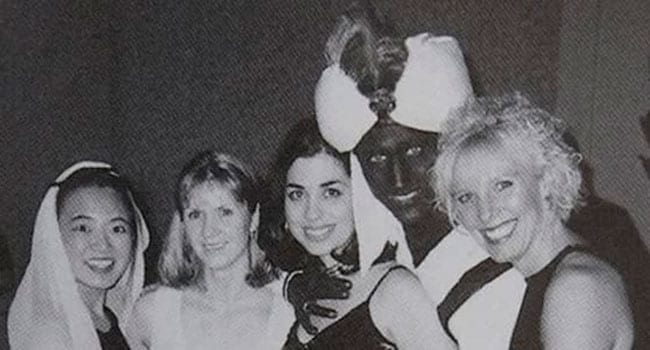 Picture this imaginary scene.
Picture this imaginary scene.
In a dark corner of dank Rideau Cottage sits Prime Minister Justin Trudeau. He’s resting comfortably in an old armchair, thinking about his future – and what he might wear to his next costume party, one assumes.
His political honeymoon ended what seems like several lifetimes ago. His role as a champion of progressive values and liberal feminism have been flushed down the drain.
He’s become the Rodney Dangerfield of Canadian politics: no respect at all.
Trudeau thinks to himself, “But look how many times I’ve survived when the chips were down. Terrible speeches, bad jokes, lack of policy and strategic acumen, swearing in Parliament, awful wardrobe decisions in India, pushing aside a female MP, groping allegation, two-planes controversy, three instances of blackface – and two ethics violations.”
“Most prime ministers would have seen their careers dissolve with one or two of these controversies,” he mutters under his breath. “There’s no way Stephen Harper, Brian Mulroney, Paul Martin or Jean Chretien could have handled all these storms. Heck, even my father would have had to take endless walks in the snow to make it through this near-daily political blizzard.
“Sure, I caught more than my fair share of breaks,” Trudeau quietly acknowledges.
Harper had been in power for almost 10 years, so he rode the winds of change. If Andrew Scheer hadn’t fallen into pitfall after pitfall, he would be leading a Conservative government in Ottawa right now. NDP Leader Jagmeet Singh could have picked up some crucial progressive support if he hadn’t constantly bumbled and fumbled before the writ was dropped – and, to some extent, during the 2019 campaign.
Meanwhile, the federal Greens couldn’t capitalize on some of their provincial electoral successes, and the Bloc Quebecois’ rise from the political dead split the French-Canadian vote in several ways.
He then starts to laugh in a typically smug fashion. “And how the heck I got away with blackface in 2019 boggles the mind! There’s no way it would have happened in 2020.”
Trudeau flashes a quick glance to some polling data beside his armchair. He’s been praised by some Canadians for his leadership during COVID-19. His approval rating has mostly ranged between 54 and 64 per cent since early April.
Naturally, his popularity occurred because he’s handed out tens of billions of dollars in emergency funds to Canadians to protect their households, businesses and livelihoods. The federal deficit could reach a mind-boggling $343.2 billion at the end of this fiscal year, which could hurt him politically.
“What choice did I have?” he shrugs in private. “As long as I keep saying it was for their benefit – and our benefit as a nation – I should escape relatively unharmed.”
He also knows that U.S. President Donald Trump’s sagging poll numbers due to his handling – or mishandling, depending on your perspective – of COVID-19 has helped him. When your political friends and neighbours struggle with a particular issue, you’ll get a treasured gold star if the perception is you’ve handled the situation better.
Yet he can’t help but wonder, “After all that’s happened, could WE spell the end of me?”
The federal government’s decision to award WE Charity a $19.5-million contract to administer the $900-million Canada Student Service Grant program has turned out to be a disaster. His family’s ties with the charitable organization, including personal appearances and speaking fees, have been a huge headache. Other Liberals have been directly or indirectly tied to this charity, including the daughter of Finance Minister Bill Morneau.
Recent stories from the Toronto Sun’s Brian Lilley that WE Charity went from $10.8 million to $43.7 million in Canadian real estate holdings in a five years, as well as Canadaland reporting the charitable organization shifted millions of dollars into the founders’ private company, aren’t helpful.
“I may not be directly involved,” he ponders, “but I’m going to take an indirect hit every time they’re blasted in the media.”
Trudeau recently apologized for not recusing himself during the awarding of the contract. He wonders if the tactic will succeed.
“I did it early and forcefully,” he thinks, and that’s quite different from his strategy with the Aga Khan and SNC-Lavalin controversies. “Canadians have to believe I’m being sincere in this instance, right? Right? Right?”
Not necessarily – and he knows it.
There’s no one to answer the lonely PM’s questions in this imaginary scene. All we can do is fade to black – and wait to see whether his Liberal minority government will face the same fate.
Michael Taube, a long-time newspaper columnist and political commentator, was a speechwriter for former Canadian prime minister Stephen Harper.
Michael is a Troy Media Thought Leader. Why aren’t you?
The views, opinions and positions expressed by columnists and contributors are the author’s alone. They do not inherently or expressly reflect the views, opinions and/or positions of our publication.

